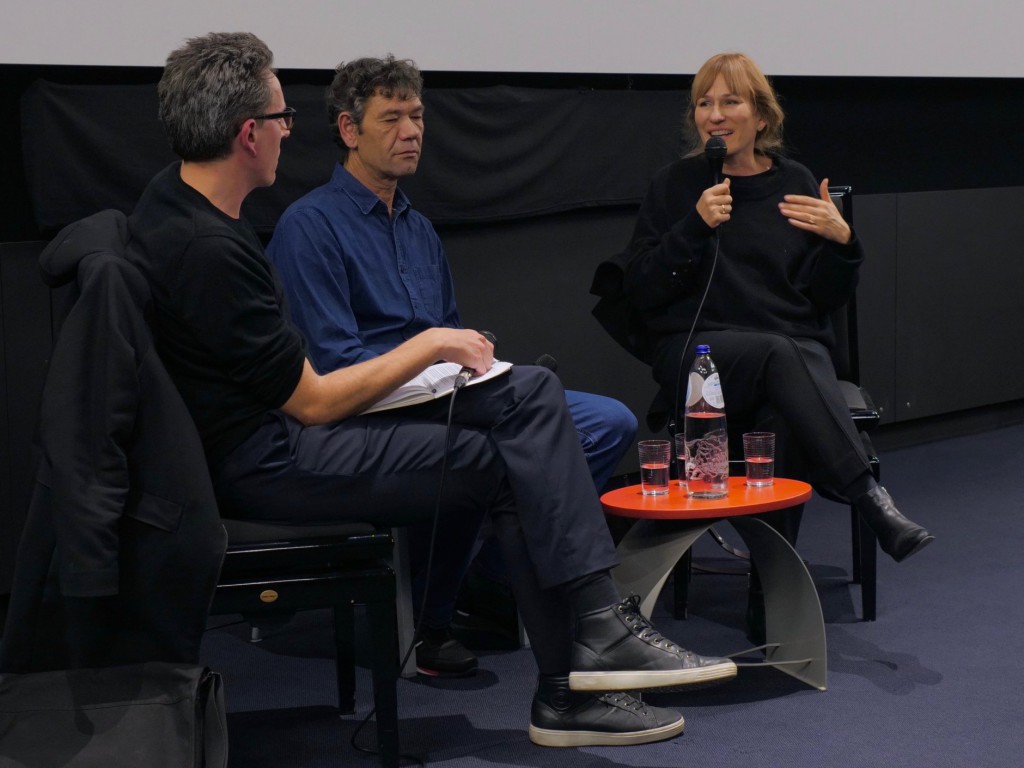In the context of a retrospective program dedicated to the work of Valeska Grisebach (15 FEBRUARY – 27 FEBRUARY 2019, Brussels), after a screening of ‘Western’ (2017) on 20 February. An initiative of CINEMATEK and Courtisane, in collaboration with KASK cinésessies, KASKcinema, STUK & Goethe-Institut.
“I’ve never set out to make a film with a story in mind. Instead, there’s always a relatively abstract theme that I approach through a process of highly associative, personal research. For me, this act of going out and seeking contact is a fundamental part of writing and shooting. For me, it’s important to use documentary methods at every stage, because that’s how you let the unexpected in: the things you can’t make up.”
After the critically acclaimed relationship drama Sehnsucht, which was awarded the Prix Cinédécouvertes by Cinematek in 2006, Valeska Grisebach needed no less than eleven years to finish a new film. But Western (2017) was more than worth the wait: rarely has a film evoked the contours and challenges of today’s Europe so poignantly. Just as her previous work, Grisebach’s third feature-length film – again with the renowned Bernhard Keller behind the camera – is the result of an extensive research process, in which she patiently searches for suitable locations and a cast of non-professional actors. For this film she found Petrelik, a hamlet in the south of Bulgaria that symbolizes the myth of the “Wild East”, the perfect location to base her own interpretation of the western genre. Inspired by the ambivalent heroic figures in classical genre practices such as Anthony Mann’s Winchester ’73 (1950), the duelling neo-cowboys in Western are embodied by a group of German construction workers who, in their confrontation with the foreign, waver between curiosity and paranoia, between a desire towards communality and a fear of the unknown. That’s how Grisebach’s self-proclaimed “dance with the western” touches on a number of issues that are central to the European debate today, including the “gold rush” to the East, a theme that also resounds throughout another film from the so-called Berliner Schule: Maren Ade’s Toni Erdmann (2016), on which it’s no coincidence that Grisebach collaborated as a script consultant. This retrospective programme, which also includes a hand-picked selection of films placed in dialogue with her own, illustrates how her work, ever since her graduation project Mein Stern (2001), balances between construction and improvisation, between the exploration of the real and the invention of fiction. A balancing act that Valeska Grisebach knows how to handle like no other.
